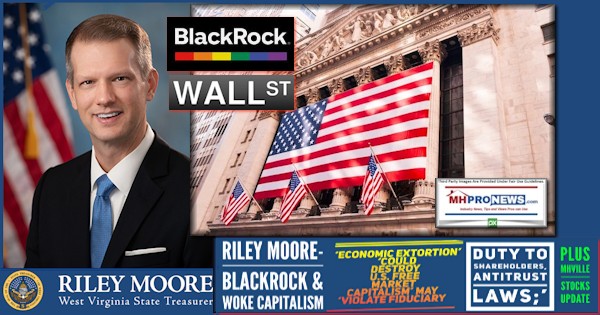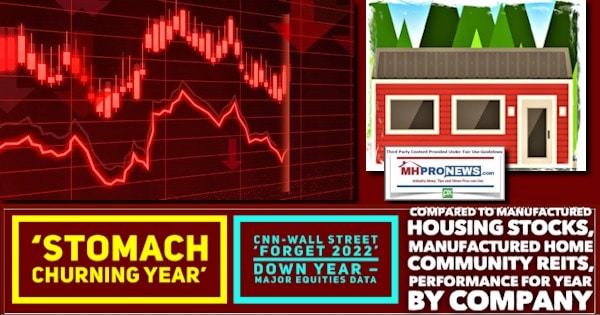
The concentration of wealth and power is a real issue which no less a figure involved in manufactured housing than Warren Buffett has spoken about. Regardless of whether or not someone agrees or disagrees with certain thinkers, it can be useful to probe what they said to see what may or may not be true. As much of the population believes the U.S. is heading in the wrong direction, for numbers, the alure of socialism is presented as an alternative. Capitalism vs. socialism is a false choice, for a variety of reasons. Among them, is that capitalism – per an array of thinkers unpacked in the report linked here – has been hijacked by those who are using Marxist and socialist thinking for their own purposes. It is with the goal of separating the proverbial wheat from the chaff that Noam Chomsky’s Requiem for the American Dream is being considered. Chomsky’s thesis makes several evidence-based and useful insights, but it is also arguably had flaws. That said, let’s first see what the leftist Chomsky and those who featured him had to say. “Noam Chomsky is an intellectual, political activist, and critic of the foreign policy of the United States and other governments. He describes himself as an anarcho-syndicalist and libertarian socialist, and is considered to be a key intellectual figure within the left wing of politics of the United States 1. Chomsky has taken strong stands against censorship and for freedom of speech, even for views he personally condemns 1. He has also been critical of capitalism and the concentration of wealth and power in the hands of a few 1” So said Bing AI in response to an inquiry from MHProNews. Chomsky was featured in the documentary that will be provided below, named Requiem for the American Dream.
Chomsky background is Jewish, but perhaps for artistic or other reasons, the term “requiem” was used in the title for this documentary. A requiem is defined as: “a Mass for the repose of the souls of the dead,” but it can also mean: “an act or token of remembrance.”
But perhaps the point being made is that “the American Dream is dead.’ While this may in some ways be considered as a pitch by Chomsky for rejecting the free enterprise system in favor of socialism, that is not why it is being presented by MHProNews.
That said, as some housekeeping items, note that the word “requiem” in the featured image generated by Dall-E (top left) for MHProNews has an apparently intended typo in it, as other choices each had more egregious spellings of the word requiem – and also for American. Note too that the promoter of the video on YouTube, posted herein below, said the following.

While Chomsky often appeals to intellectuals and graduate students, there are elements of this video that any thoughtful adult could find useful insights and agreement with. That’s how paltering and propaganda work. That’s why the wheat ought to be separated from the chaff. Is the American Dream at risk? Absolutely. Should it be replaced by socialism? Absolutely not, for reasons explored in the new report on MHLivingNews linked here. What’s ironic is how often observers from the left – like Chomsky – and right cite similar facts and figures to make their respective points.
MHProNews has frankly edited in some highlighting as well as bracketed comments. Highlighting is to draw attention to specific items, while the bracketed comments may clarify or perhaps even contradict some of the more questionable items in the text from the transcript of the video, or when useful, to underscore and refine some point made by Chomsky. The video itself is not edited. The transcript still faithfully reflect Chomsky’s thoughts, worthy of consideration and further refinement in the light of other facts, evidence, and reason that can be applied by readers like yourself.
Part I
REQUIEM FOR THE AMERICAN DREAM
Featuring Noam Chomsky
[Note 1: Edited by MHProNews based on Media Education Foundation transcript]
[Note 2: bracketed remarks below are edited in by MHProNews.
Note 3: that the absence of edited in remarks should not automatically be construed as agreement by MHProNews.]
Text on screen
Noam Chomsky is widely regarded as the most influential intellectual of our time. Filmed over four years, these are his final long-form documentary interviews.
Noam Chomsky: During the Great Depression, which I’m old enough to remember – and most of my family were unemployed working class – it was bad, much worse subjectively than today. But there was an expectation that things were going to get better. There was a real sense of hopefulness. There isn’t today.
Inequality is really unprecedented. If you look at total inequality, it’s like the worst periods of American History. But if you refine it more closely, the inequality comes from the extreme wealth in a tiny sector of the population, a fraction of 1 percent.
There were periods like the Gilded Age in the 20s and the Roaring 90s and so on, when a situation developed rather similar to this. Now, this period’s extreme – because if you look at the wealth distribution, the inequality mostly comes from super wealth – literally, the top 1/10th of a percent are just super wealthy. Not only is it extremely unjust in itself, inequality has highly negative consequences on the society as a whole – because the very fact of inequality has a corrosive, harmful effect on democracy.
[MHProNews on the Gilded Age and “No Kings…” – the passage of the Sherman Act].
You open by talking about the American Dream. Part of the American Dream is class mobility. You’re born poor. You work hard. You get rich. It was possible for a worker to get a decent job, buy a home, get a car, have his children go to school. It’s all collapsed.
Title screen
Requiem For The American Dream
Chomsky: Imagine yourself in an outside position, looking from Mars. What do you see?
In the United States, there are professed values like democracy. In a democracy, public opinion is going to have some influence on policy. And then, the government carries out actions determined by the population. That’s what democracy means.
[MHProNews note: this use of the term democracy applied to the U.S. is arguably paltering. It may be common, even among some conservatives, to speak of the U.S. being a democracy, but in fact the U.S. is a constitutional republic. The constitution was written to define the limits and scope of governmental power in the U.S. While the people do vote, there are some things that the people and government are not supposed to be able to do. For instance, we can’t – at least in theory – vote to steal the property of a neighbor. As a reminder of such facts, the Pledge of Allegiance says in part: “and to the Republic for which it [the flag] stands. One nation, under God, indivisible, with liberty and justice for all.” We are a republic that has some democratic features.]
It’s important to understand that privileged and powerful sectors have never liked democracy and for very good reasons. Democracy puts power into the hands of the general population and takes it away from them. It’s kind of a principle of concentration of wealth and power.
Text on screen
The 10 Principles of Concentration of Wealth & Power
Chomsky: Concentration of wealth yields concentration of power, particularly so as the cost of elections skyrockets, which kind of forces the political parties into the pockets of major corporations. And this political power quickly translates into legislation that increases the concentration of wealth. So fiscal policy like tax policy, deregulation, rules of corporate governance and a whole variety of measures – political measures – designed to increase the concentration of wealth and power which, in turn, yields more political power to do the same thing. And that’s what we’ve been seeing. So we have this kind of vicious cycle in progress.
You know, actually, it is so traditional that it was described by Adam Smith in 1776. You read the famous Wealth of Nations… He says in England, the principle architects of policy are the people who own the society – in his day, merchants and manufacturers. And they make sure that their own interests are very well cared for, however grievous the impact on the people of England or others.
Now, it’s not merchants and manufacturers, it’s financial institutions and multinational corporations. The people who Adam Smith called the “masters of mankind” – and they’re following the vile maxim, “All for ourselves and nothing for anyone else.” They’re just going to pursue policies that benefit them and harm everyone else. And in the absence of a general popular reaction, that’s pretty much what you’d expect.
Principle #1: Reduce Democracy
Chomsky: Right through American history, there’s been an ongoing clash between pressure for more freedom and democracy coming from below, and efforts at elite control and domination coming from above.
It goes back to the founding of the country. James Madison, the main framer, who was as much of a believer in democracy as anybody in the world in that day, nevertheless felt that the United States system should be designed, and indeed with his initiative was designed, so that power should be in the hands of the wealthy – because the wealthy are the more responsible set of men.
And, therefore, the structure of the formal constitutional system placed most power in the hands of the Senate. Remember, the Senate was not elected in those days. It was selected from the wealthy. Men, who as Madison put it, “Had sympathy for property owners and their rights.”
[MHProNews: the basic point that Chomsky makes that the Senate was not directly elected by the people initially is historically true. But some of his remarks can find support for a more republic-over a democracy motivation. To learn more from a different perspective, see the articles linked here and here.]
If you read the debates at the Constitutional Convention, Madison said, “The major concern of the society has to be to protect the minority of the opulent against the majority.” And he had arguments. Suppose everyone had a vote freely. He said, “Well, the majority of the poor would get together and they would organize to take away the property of the rich.” And, he said, “That would obviously be unjust, so you can’t have that.” So, therefore the constitutional system has to be set up to prevent democracy.
[MHProNews: this is apparently taking Madison out of context and paraphrasing his thoughts in a manner that Bing AI said was not found in the Federalist papers themselves, as Chomsky claimed. Per Bing AI: “I was unable to find any evidence that James Madison wrote the exact words you mentioned in any of the Federalist Papers.” “However, Madison did write about the protection of minority rights in several of the Federalist Papers, including Federalist No. 10 and Federalist No. 51.” From the Library of Congress (LOC) text of Federalist 51, which per a Word search does not use the word “opulent” at all, Madison said this: “It is of great importance in a republic not only to guard the society against the oppression of its rulers, but to guard one part of the society against the injustice of the other part. Different interests necessarily exist in different classes of citizens. If a majority be united by a common interest, the rights of the minority will be insecure.” It was part of a plan to keep all segments of society safe from oppression, both the tyranny of the few (i.e.: rulers like kings and nobility) as well as the possible threat of a majority group oppressing the minority. Perhaps Chomsky erred by mistakenly trusting some third-party source, rather than the original, or he inserted a paraphrase that does injustice to Madison’s words and intentions. Either way, Chomsky appears to be mistaken in this claim. More on this in Part II, below]
It’s of some interest that this debate has a hoary tradition. Goes back to the first major book on political systems, Aristotle’s Politics. He says, “Of all of them, the best is democracy,” but then he points out exactly the flaw that Madison pointed out.
If Athens were a democracy for free men, the poor would get together and take away the property of the rich. Well, same dilemma – they had opposite solutions. Aristotle proposed what we would nowadays call a welfare state. He said, “Try to reduce inequality.” So, same problem – opposite solutions. One is reduce inequality – you won’t have this problem. The other is reduce democracy.
If you look at the history of the United States, it’s a constant struggle between these two tendencies. A democratizing tendency that’s mostly coming from the population, a pressure from below, and you get this constant battle going on, periods of regression, periods of progress. The 1960s for example, were a period of significant democratization.
Sectors of the population that were usually passive and apathetic became organized, active, started pressing their demands. And they became more and more involved in decision-making, activism and so on. It just changed consciousness in a lot of ways.
Minority rights.
Malcolm X
If democracy means freedom, why aren’t our people free? (Right!) If democracy means justice, why don’t we have justice? (That’s right!) If democracy means equality, why don’t we have equality?
Chomsky: Women’s rights.
Gloria Steinem
This inhuman system of exploitation will change, but only if we force it to change, and force it together.
[As MHProNews has previously reported, the women’s suffrage movement grew in the 19th century in the U.S. It happened to be led by more by Republicans, not Democrats.]
Chomsky: Concern for the environment.
Walter Cronkite
A unique day in American history is ending, a day set aside for a nationwide outpouring of mankind seeking its own survival.
Chomsky: Opposition to aggression.
Dr. Benjamin Spock
I say to those who criticize us for the militancy of our dissent that if they are serious about law and order, they should first provide it for the Vietnamese people, for our own black people, and for our own poor people.
Chomsky: Concern for other people.
Dr. Martin Luther King
One day we must ask the question, “Why are there 40,000,000 poor people in America?” When you begin to ask that question, you’re raising a question about the economic system, about a broader distribution of wealth, the question of restructuring the whole of American society.
[MHProNews has explored the thinking of Dr. King several times in various reports, like those linked here, here, here, and here.]
Chomsky: These are all civilizing effects, and that caused great fear.
I hadn’t anticipated the power – I should of – but I didn’t anticipate the power of the reaction to these civilizing effects of the 60s. I did not anticipate the strength of the reaction to it. The backlash.
Principle #2: Shape Ideology
Chomsky: There has been an enormous concentrated, coordinated business offensive beginning in the 70s to try to beat back the egalitarian efforts that went right through the Nixon years. You see it in many respects.
Over on the right, you see it in things like the famous Powell Memorandum sent to the Chamber of Commerce, the major business lobby, by later Supreme Court justice Powell – warning them that business is losing control over the society – and something has to be done to counter these forces. Of course, he puts it in terms of defense, “Defending ourselves against an outside power.” But if you look at it, it’s a call for business to use its control over resources to carry out a major offensive to beat back this democratizing wave.
Over on the liberal side, there’s something exactly similar. The first major report of the Trilateral Commission is concerned with this. It’s called “The Crisis of Democracy”. Trilateral Commission is liberal internationalists – their flavor is indicated by the fact that they pretty much staffed the Carter Administration. They were also appalled by the democratizing tendencies of the 60s, and thought we have to react to it. They were concerned that there was an “excess of democracy” developing.
Previously passive and obedient parts of the population – what are sometimes called, “the special interests” – were beginning to organize and try to enter the political arena, and they said, “That imposes too much pressure on the state. It can’t deal with all these pressures.” So, therefore, they have to return to passivity and become depoliticized.
They were particularly concerned with what was happening to young people, “The young people are getting too free and independent.” The way they put it, there’s a failure on the part of the schools, the universities, the churches… the institutions responsible for the “indoctrination of the young.” Their phrase, not mine.
If you look at their study, there’s one interest they never mention, private business. And that makes sense, they’re not special interest, they’re the national interest, kind of by definition. So they’re okay. They’re allowed to, you know, have lobbyists, buy campaigns, staff the executive, make decisions – that’s fine. But it’s the rest, the special interests, the general population, who have to be subdued.
Well, that’s the spectrum. It’s the kind of ideological level of the backlash. But the major backlash, which was in parallel to this, was just redesigning the economy.
Principle #3: Redesign the Economy
Chomsky: Since the 1970s, there’s been a concerted effort on the part of the masters of mankind, the owners of the society, to shift the economy in two crucial respects. One, to increase the role of financial institutions: banks, investment firms, so on… insurance companies. By 2007, right before the latest crash, they had literally 40% of corporate profits, far beyond anything in the past.
Back in the 1950s, as for many years before, the United States economy was based largely on production. The United States was the great manufacturing center of the world. Financial institutions used to be a relatively small part of the economy and their task was to distribute unused assets like, say, bank savings to productive activity.
Archival voiceover
The bank always has on hand a reserve of money received from the stockholders and depositors. On the basis of these cash reserves, a bank can create credit so besides providing a safe place for depositing money, a bank serves a community by making additional credit available for many purposes. For a manufacturer to meet his payroll during slack selling periods, for a merchant to enlarge and remodel his store, and for many other good reasons why people are always needing more credit than they have immediately available.
Chomsky: That’s a contribution to the economy. Regulatory system was established. Banks were regulated. The commercial and investment banks were separated, cut back their risky investment practices that could harm private people.
There had been, remember, no financial crashes during the period of regulation. By the 1970s, that changed.
[MHProNews: pardon me, but this part is subject to interpretation too, and/or is flatly in error, as was the case above with the apparent Madison misquote by Chomsky. There were several periods where the banking and regulatory system in the U.S. had crashes before the 1970s, ironically, including the Great Depression, which Chomsky mentions early on. That said, did regulatory systems fail since the 1970s, as Chomsky asserted? Yes, as the example of the Great Recession circa 2008 or the S&L Crisis. On the later point, Bing AI said this on 12.9.2023: The Savings and Loan (S&L) Crisis was a slow-moving financial disaster that occurred in the United States between 1986 and 1995. The crisis resulted in the failure of nearly a third of the 3,234 savings and loan associations in the United States, with a total cost of $160 billion; $132 billion of which was borne by taxpayers1. The roots of the S&L crisis lay in excessive lending, speculation, and risk-taking driven by the moral hazard created by deregulation and taxpayer bailout guarantees.” That said, some of what Chomsky said in this section is interesting and supported by evidence.]
You started getting that huge increase in the flows of speculative capital, just astronomically increase, enormous changes in the financial sector from traditional banks to risky investments, complex financial instruments, money manipulations and so on.
Increasingly, the business of the country isn’t production, at least not here. The primary business here is business. You can even see it in the choice of directors. A director of a major American corporation back in the 50s and 60s was very likely to be an engineer, somebody who graduated from a place like MIT, maybe industrial management. More recently, the directorship and the top managerial positions are people who came out of business schools, learned financial trickery of various kinds, and so on.
By the 1970s, say General Electric could make more profit playing games with money than you could by producing in the United States. You have to remember that General Electric is substantially a financial institution today. It makes half its profits just by moving money around in complicated ways. It’s very unclear that they’re doing anything that of value to the economy. That’s one phenomenon, what’s called financialization of the economy. Going along with that is the offshoring of production.
[MHProNews: Chomsky’s point about offshoring is a periodic theme made in our publications about problems related to shipping production off to China, or other nations. See the Walmart Effect video in the report linked here, and more below,]
The trade system was reconstructed with a very explicit design of putting working people in competition with one another all over the world. What’s its lead to is a reduction in the share of income on the part of working people. It’s been particularly striking in the United States but it’s happening worldwide. It means that an American worker’s in competition with the super-exploited worker in China.
[MHProNews While several of the points made are interesting or important, this one is perhaps particularly so. Pitting American employees against foreign workers, and particularly the ones in Communist China, is indeed an injustice for U.S. citizens. It was driven in good measure by big business interests working with Chinese communists. See the reports linked here, here, here, and here.]
Meanwhile, highly paid professionals are protected. They’re not placed in competition with the rest of the world. Far from it. And, of course, the capital is free to move. Workers aren’t free to move, labor can’t move, but capital can.
Again, going back to the classics like Adam Smith, as he pointed out, free circulation of labor is the foundation of any free trade system, but workers are pretty much stuck. The wealthy and the privileged are protected, so you get obvious consequences. And they’re recognized and, in fact, praised.
Policy is designed to increase insecurity. Alan Greenspan. When he testified to Congress, he explained his success in running the economy as based on what he called, “Greater Worker Insecurity.”
Alan Greenspan
A typical restraint on compensation increases has been evident for a few years now, but as I outlined in some detail in testimony last month, I believe that job insecurity has played the dominant roll.
Chomsky: Keep workers insecure, they’re going to be under control. They are not going to ask for, say, decent wages or decent working conditions or the opportunity of free association, meaning unionize.
Now, for the masters of mankind, that’s fine. They make their profits. But for the population, it’s devastating. These two processes, financialization and offshoring are part of what lead to the vicious cycle of concentration of wealth and concentration of power.
Archival Chomsky video
I’m Noam Chomsky and I’m on the faculty at MIT and I’ve been getting more and more heavily involved in anti-war activities for the last few years.
Archival announcer
Noam Chomsky has made two international reputations. The widest is as one of the national leaders of American resistance to the Vietnam War. The deepest is as a professor of linguistics who, before he was 40 years old, had transformed the nature of his subject.
Archival interviewer
You are identified with the new left, whatever that is. You certainly have been an activist as well as a writer.
William F. Buckley
Professor Noam Chomsky is listed in anybody’s catalog as among the half-dozen top heroes of the new left. The standing he achieved by adopting over the past 2 or 3 years a series of adamant positions rejecting at least American foreign policy, at most America itself.
Chomsky: Actually this notion anti-American is quite an interesting one. It’s actually a totalitarian notion. It isn’t used in free societies. So, if someone in, say, Italy is criticizing Berlusconi or the corruption of the Italian state and so on, they’re not called anti-Italian. In fact, if they were called anti-Italian, people would collapse in laughter in the streets of Rome or Milan.
In totalitarian states the notion’s used, so in the old Soviet Union dissidents were called anti-Soviet.
That was the worst condemnation. In the Brazilian military dictatorship, they were called anti-Brazilian. Now, it’s true that in just about every society, the critics are maligned or mistreated… different ways depending on the society. Like in the Soviet Union, say Václav Havel would be imprisoned. In a U.S. dependency like El Salvador, at the same time, his counterpart would have their brains blown out by U.S. run state terrorist forces. In other societies, they’re just condemned or vilified and so on.
In the United States, one of the terms of abuse is “anti-American”. There’s a couple of others, like “Marxist”. There’s an array of terms of abuse. But in the United States, you have a very high degree of freedom. So, if you’re vilified by some commissars, then who cares? You go on, do you work anyway.
These concepts only arise in a culture where if you criticize state power, and by state I mean more generally not just government but state corporate power, if you criticize concentrated power, you’re against the society, you’re against the people. That’s quite striking that it’s used in the United States. In fact, as far as I know, it’s the only democratic society where the concept isn’t just ridiculed. It’s a sign of elements of the elite culture, which are quite ugly.
Principle #4: Shift the Burden
Chomsky: The American Dream, like many ideals, was partly symbolic, but partly real. In the 1950s and 60s, say, there was the biggest growth period in American economic history. The Golden Age.
It was pretty egalitarian growth, so the lowest fifth of the population was improving about as much as the upper fifth. And there were some welfare state measures, which improved life for much the population. It was, for example, possible for a black worker to get a decent job in an auto plant, buy a home, get a car, have his children go to school and so on. And the same across the board.
When the U.S. was primarily a manufacturing center, it had to be concerned with its own consumers – here. Famously, Henry Ford raised the salary of his workers so they’d be able to buy cars.
When you’re moving into an international “plutonomy”, as the banks like to call it – the small percentage of the world’s population that’s gathering increasing wealth – what happens to American consumers is much less a concern, because most of them aren’t going to be consuming your products anyway, at least not on a major basis. Your goals are: profit in the next quarter – even if it’s based on financial manipulations – high salary, high bonuses, produce overseas if you have to, and produce for the wealthy classes here and their counterparts abroad.
[MHProNews notes: for more details/refinement on reports about undermining U.S. employees of all backgrounds, see reports linked here, here, here, and here. MHProNews previously reported on the leaked Citigroup memo to investors that said in part: “In early September we wrote about the (ir)relevance of oil to equities and introduced the idea that the U.S. is a Plutonomy…Plutonomies have occurred before in sixteenth century Spain, in seventeenth century Holland, the Gilded Age and the Roaring Twenties in the U.S. … We project that the plutonomies (the U.S., UK, and Canada) will likely see even more income inequality, disproportionately feeding off a further rise in the profit share in their economies, capitalist-friendly governments, more technology-driven productivity, and globalization.” Note this supports, and might have influenced, Warren Buffett’s remarks about his class winning in “class warfare.”]
What about the rest? There’s a term coming into use for them, too. They’re called the “precariat”, precarious proletariat – the working people of the world who live increasingly precarious lives. It’s related to the attitude toward the country altogether.
During the period of great growth of the economy – the 50s and the 60s, but in fact, earlier – taxes on the wealthy were far higher. Corporate taxes were much higher – taxes on dividends were much higher – simply taxes on wealth were much higher. The tax system has been redesigned, so that the taxes that are paid by the very wealthy are reduced and, correspondingly, the tax burden on the rest of the population’s increased.
Now the shift is towards trying to keep taxes just on wages and on consumption – which everyone has to do – not, say, on dividends, which only go to the rich. The numbers are pretty striking.
Now, there’s a pretext – of course, there’s always a pretext. The pretext in this case is – well that increases investment and increases jobs – but there isn’t any evidence for that. If you want to increase investment, give money to the poor and the working people. They have to keep alive, so they spend their incomes. That stimulates production, stimulates investment, leads to job growth and so on.
If you’re an ideologist for the masters, you have a different line. In fact, right now, it’s almost absurd. Corporations have money coming out of their pockets. In fact, General Electric, are paying zero taxes and they have enormous profits. Let’s them take the profit somewhere else, or defer it, but not pay taxes – and this is common. The major America corporations shifted the burden of sustaining the society onto the rest of the population.
Principle #5: Attack Solidarity
Chomsky: Solidarity is quite dangerous. From the point of view of the masters, you’re only supposed to care about yourself, not about other people. This is quite different from the people they claim are their heroes like Adam Smith, who based his whole approach to the economy on the principle that sympathy is a fundamental human trait – but that has to be driven out of people’s heads. You’ve got to be for yourself, follow the vile maxim: “don’t care about others”, which is okay for the rich and powerful, but is devastating for everyone else. It’s taken a lot of effort to drive these basic human emotions out of people’s heads.
We see it today in policy formation. For example, in the attack on Social Security. Social Security is based on a principle. It’s based on a principle of solidarity. Solidarity – caring for others. Social Security means, “I pay payroll taxes so that the widow across town can get something to live on.” For much of the population, that’s what they survive on. It’s of no use to the very rich, so therefore, there’s a concerted attempt to destroy it. One of the ways is defunding it. You want to destroy some system? First defund it. Then, it won’t work. People will be angry. They want something else. It’s a standard technique for privatizing some system.
We see it in the attack on public schools. Public schools are based on the principle of solidarity. I no longer have children in school. They’re grown up, but the principle of solidarity says, “I happily pay taxes so that the kid across the street can go to school.” Now, that’s normal human emotion. You have to drive that out of people’s heads. “I don’t have kids in school. Why should I pay taxes? Privatize it,” so on. The public education system, all the way from kindergarten to higher education, is under severe attack. That’s one of the jewels of American society.
You go back to the Golden Age again, the great growth period in the 50s and 60s. A lot of that is based on free public education. One of the results of the Second World War was the GI Bill of Rights, which enabled veterans, and remember, that’s a large part of the population then, to go to college. They wouldn’t have been able to, otherwise. They essentially got free education.
Archival voiceover
Where a community, state or nation courageously invests a substantial share of its resources in education, the investment invariable returned in better business and the higher standard of living.
Chomsky: U.S. was way in the lead in developing extensive mass public education at every level. By now, in more than half the states, most of the funding for the colleges comes from tuition, not from the state. That’s a radical change, and that’s a terrible burden on students. It means that students, if they don’t come from very wealthy families, they’re going to leave college with big debts. And if you have a big debt, you’re trapped. I mean, maybe you wanted to become a public interest lawyer, but you’re going to have to go into a corporate law firm to pay off those debts. And by the time you’re part of the culture, you’re not going to get out of it again. That’s true across the board.
In the 1950s, it was a much poorer society than it is today but, nevertheless, could easily handle essentially free mass higher education. Today, a much richer society claims it doesn’t have the resources for it. That’s just what’s going on right before our eyes. That’s the general attack on principles that… not only are they humane, they are the basis of the prosperity and health of this society.
Principle #6: Run the Regulators
Chomsky: If you look over the history of regulation, say, railroad regulation, financial regulation and so on, you find that quite commonly it’s either initiated by the economic concentrations that are being regulated, or it’s supported by them. And the reason is because they know that, sooner or later, they can take over the regulators. It ends up with what’s called “regulatory capture”. The business being regulated is in fact running the regulators.
[MHProNews: a recent report on regulation is linked here. The famous and insightful quote by John Kenneth Galbraith on regulators is linked here.]
Bank lobbyists are actually writing the laws of financial regulation – it gets to that extreme. That’s been happening through history and, again, it’s a pretty natural tendency when you just look at the distribution of power.
One of the things that expanded enormously in the 1970s is lobbying, as the business world moved sharply to try to control legislation. The business world was pretty upset by the advances in public welfare in the 60s, in particular by Richard Nixon. It’s not too well understood but he was the last New Deal president, and they regarded that as class treachery.
In Nixon’s administration, you get the consumer safety legislation, safety and health regulations in the workplace, the EPA – the Environmental Protection Agency. Business didn’t like it, of course. They didn’t like the high taxes. They didn’t like the regulation. And they began a coordinated effort to try to overcome it. Lobbying sharply increased. Deregulation began with a real ferocity.
There were no financial crashes in the 50s and the 60s because the regulatory apparatus of the New Deal was still in place. As it began to be dismantled under business pressure and political pressure, you get more and more crashes. And it goes on right through the years. 70s it starts to begin. 80s really takes off.
[MHProNews: once more, Chomsky makes claims that are contradicted by evidence. Per Bing AI on this date: “Yes, there were financial crashes in the 1950s and 1960s. The most notable recession during this period was the Recession of 1958, which was a sharp worldwide economic downturn that lasted from August 1957 to April 1958. It was the most significant recession during the post-World War II boom between 1945 and 1970. …” That said, to his point that big businesses try to overcome regulations through coordinated efforts – i.e.: lobbying, changing legislation, influence peddling, etc. is fair.]
News announcer
Congress was asked to approve federal loan guarantees to the auto company of up to $1,500,000,000…
Chomsky: Now, all of this is quite safe as long as you know the government’s going to come to your rescue. Take, say, Reagan. Instead of letting them pay the cost, Reagan bailed out the banks like Continental Illinois, the biggest bailout of American history at the time. He actually ended his term with a huge financial crisis – the Savings and Loan Crisis – and the government moved in and bailed it out.
News announcer
President Bush today signed the $300,000,000,000 Savings and Loan bailout bill…
Chomsky: In 1999, regulation was dismantled to separate commercial banks from investment banks. Then comes the Bush and Obama bailout.
News announcers
Bear Stearns is running to the feds to stay afloat… President Bush today defended the decision to bail out Citigroup, Fannie Mae and Freddie Mac and asked for a total of $3,000,000,000 more – the bailout could get much bigger, signaling deepening troubles for the U.S. economy.
Chomsky: And they’re building up the next one.
Each time, the taxpayer is called on to bail out those who created the crisis, increasingly the major financial institutions. In a capitalist economy, you wouldn’t do that. In a capitalist system, that would wipe out the investors who made risky investments. But the rich and powerful, they don’t want a capitalist system. They want to be able to run to the nanny state as soon as they’re in trouble, and get bailed out by the taxpayer. That’s called “Too Big to Fail”.
There are Nobel laureates in economics who significantly disagree with the course that we’re following. People like Joe Stiglitz, Paul Krugman and others, and none of them were even approached. The people picked to fix the crisis were those who created it – the Robert Rubin crowd, the Goldman Sachs crowd. They created the crisis… are now more powerful than before. Is that accident? Not when you pick those people to create an economic plan. I mean, what do you expect to happen?
Meanwhile, for the poor, let market principles prevail – don’t expect any help from the government – the government’s the problem, not the solution, and so on. That’s, essentially, neo-liberalism. It has this dual character which goes right back in economic history. One set of rules for the rich. Opposite set of rules for the poor.
Nothing surprising about this – it’s exactly the dynamics you expect. If the population allows it to proceed, it’s just going to go on and on like this – until the next crash which is so much expected that credit agencies, which evaluate the status of firms, are now counting into their calculations the taxpayer bailout that they expect to come after the next crash. Which means that the beneficiaries of these credit ratings like the big banks, they can borrow money more cheaply, they can push out smaller competitors, and you get more and more concentration. Everywhere you look, policies are designed this way, which should come as absolutely no surprise to anyone. That’s what happens when you put power into the hands of a narrow sector of wealth, which is dedicated to increasing power for itself, just as you’d expect.
Principle #7: Engineer Elections
Chomsky: Concentration of wealth yields concentration of political power, particularly so as the cost of elections skyrockets, which forces the political parties into the pockets of major corporations. The Citizens United – this was January 2009, I guess – that’s a very important Supreme Court decision, but it has a history and you got to think about the history.
The 14th amendment has a provision that says, “No person’s rights can be infringed without due process of law”. And the intent, clearly, was to protect freed slaves – says, “Okay, they’ve got the protection of the law.” I don’t think it’s ever been used for freed slaves, if ever, marginally. Almost immediately, it was used for businesses – corporations – their rights can’t be infringed without due process of law. So they gradually became persons under the law.
Corporations are state-created legal fictions. Maybe they’re good, maybe they’re bad – but to call them persons is kind of outrageous. So they got personal rights back about a century ago, and that extended through the 20th century. They gave corporations rights way beyond what persons have.
[MHProNews note: a documentary video on this topic of corporations is part of a collection of videos linked here.]
So if, say, General Motors invests in Mexico, they get national rights, the rights of the Mexican business. While the notion of person was expanded to include corporations, it was also restricted.
If you take the 14th amendment literally, then no undocumented alien can be deprived of rights, if they’re persons. Undocumented aliens who are living here and building your buildings, cleaning your lawns, and so on – they’re not persons – but General Electric is a person, an immortal superpowerful person. This perversion of the elementary morality, and the obvious meaning of the law, is quite incredible.
In the 1970s, the courts decided that money is a form of speech – Buckley vs. Valeo. Then you go on through the years to Citizens United, which says that, the right of free speech of corporations, mainly to spend as much money as they want, that can’t be curtailed. Take a look what that means. It means that corporations, which anyway have been pretty much buying elections, are now free to do it with virtually no constraint. That’s a tremendous attack on the residue of democracy.
It’s very interesting to read the rulings, like Justice Kennedy’s swing vote. His ruling said, “Well, look, after all, CBS is given freedom of speech – they’re a corporation – why shouldn’t Generally Electric be free to spend as much money as they want?” It’s true that CBS is given freedom of speech, but they’re supposed to be performing a public service. That’s why. That’s what the press is supposed to be, and General Electric is trying to make money for the chief executive and some of the shareholders.
It’s an incredible decision, and it puts the country in a position where business power is greatly extended beyond what it always was. This is part of that vicious cycle. The Supreme Court Justices are put in by reactionary presidents, who get in there because they’re funded by business. It’s the way the cycle works.
Principle #8: Keep the Rabble in Line
Chomsky: There is one organized force which traditionally, plenty of flaws, but with all its flaws it’s been in the forefront of efforts to improve the lives of the general population. That’s organized labor. It’s also a barrier to corporate tyranny. So it’s the one barrier to this vicious cycle going on which does lead to corporate tyranny.
A major reason for the concentrated, almost fanatic attack on unions – on organized labor – is they are a democratizing force. They provide a barrier that defends workers’ rights, but also popular rights generally. That interferes with the prerogatives and power of those who own and manage the society.
[MHProNews: that view is interesting, has some merits, but ignores the point that Democrats have long held sway over big parts of the labor movement and labor votes. There is absolutely a place for unions and other forms of free association in a republic. That said, in the U.S., many of the levers of power – big media, big tech, big business, and big labor – to name but a few – have for some years been in the hands of Democrats who are routinely aligned with the wealthy that Chomsky claims to rail against.]
I should say that anti-union sentiment in the United States among elites is so strong that the fundamental core of labor rights, the basic principle in the International Labor Organization, is the right of free association – which would mean the right to form unions. The U.S. has never ratified that, so I think the U.S. may be alone among major societies in that respect. It’s considered so far out of the spectrum of American politics it literally has never been considered.
Remember, the U.S. has a long and very violent labor history as compared with comparable societies, but the labor movement had been very strong. By the 1920s, in a period not unlike today, it was virtually crushed.
Archival voiceover
A truck driver’s strike was climaxed by severe riots with many casualties. Open warfare rages through the streets of the city as 3,000 union pickets battle 700 police. Guns, tear gas, clubs and fists bring injuries to more than 80 persons and caused the death of 2.
Chomsky: By the mid 30s, it began to reconstruct. Franklin Delano Roosevelt, he himself was rather sympathetic to progressive legislation that would be in the benefit of the general population, but he had to somehow get it passed. He informed labor leaders and others, “Force me to do it.” What he meant is, go out and demonstrate, organize, protest, develop the labor movement. When the popular pressure is sufficient, I’ll be able to put through the legislation you want.
Franklin D. Roosevelt
I am not for a return to that definition of liberty, under which for many years a free people were being gradually regimented into the service of a privileged few. I prefer that broader definition of liberty.
Chomsky: So there was kind of a combination of sympathetic government, and by the mid-30s, very substantial popular activism. There were industrial actions. There were sit-down strikes, which were very frightening to ownership. You have to recognize the sit-down strike is just one step before saying, “We don’t need bosses. We can run this by ourselves.”
And business was appalled. You read the business press, say, in the late 30s, they were talking about the “hazard facing industrialists” and the “rising political power of the masses”, which has to be repressed. Things were on hold during the Second World War, but immediately after the Second World War the business offensive began in force. The Taft-Hartley Act…
Robert A. Taft
The Taft-Hartley Act was written for only one purpose, to restore justice and equality in labor management relations.
Chomsky: Then McCarthyism was used for massive corporate propaganda offensives to attack unions. It increased sharply during the Reagan years. Reagan pretty much told the business world, “If you want to illegally break organizing efforts and strikes – go ahead.”
Ronald Reagan
They are in violation of the law, and if they do not report for work within 48 hours, they have forfeited their jobs and will be terminated.
Chomsky: It continued in the 90s and, of course with George W. Bush, it went through the roof. By now, less than 7% of private sector workers have unions. The effect is that the usual counterforce to an offensive by our highly class-conscious business class has dissolved.
Now, if you’re in a position of power, you want to maintain class-consciousness for yourself, but eliminate it everywhere else. You go back to the 19th century, in the early days of the Industrial Revolution in the United States, working people were very conscious of this. They, in fact, overwhelmingly regarded wage labor as not very different from slavery, different only in that it was temporary. In fact, it was such a popular idea that it was the slogan of the Republican Party.
That was a very sharp class-consciousness. In the interest of power and privilege, it’s good to drive those ideas out of people’s heads. You don’t want them to know that they’re an oppressed class.
So this is one of the few societies in which you just don’t talk about class. In fact, the notion of class is very simple. Who gives the orders? Who follows them? That basically defines class. It’s more nuanced and complex, but that’s basically it.
Principle #9: Manufacturing Consent
Chomsky: The public relations industry – the advertising industry, which is dedicated to creating consumers – it’s a phenomena that developed in the freest countries, in Britain and the United States, and the reason is pretty clear. It became clear by, say, a century ago that it was not going to be so easy to control the population by force. Too much freedom had been won. Labor organizing, parliamentary labor parties in many countries, women starting to get the franchise and so on.
So you had to have other means of controlling people. And it was understood and expressed that you have to control them by control of beliefs and attitudes. Well, one of the best ways to control people in terms of attitudes is what the great political economist Thorstein Veblen called “fabricating consumers”.
If you can fabricate once, make obtaining things that are just about within your reach the essence of life, they’re going to be trapped into becoming consumers. You read the business press in say, 1920s, it talks about the need to direct people to the superficial things of life, like “fashionable consumption” and that’ll keep them out of our hair.
You find this doctrine all through progressive intellectual thought, like Walter Lippmann, the major progressive intellectual of the 20th century. He wrote famous progressive essays on democracy in which his view was exactly that. “The public must be put in their place” so that the responsible men can make decisions without interference from the “bewildered herd”.
They’re to be spectators, not participants. Then you get a properly functioning democracy – straight back to Madison and on to Powell’s Memorandum, and so on. The advertising industry just exploded with this as its goal – fabricating consumers. And it’s done with great sophistication.
TV advertisement voiceover
You don’t see many wild stallions anymore. He’s one of the last of a wild and very singular breed. Come to Marlboro Country.
Chomsky: The ideal is what you actually see today where, let’s say, teenage girls if they have a free Saturday afternoon, will go walking in the shopping mall, not to the library or somewhere else. The idea is to try to control everyone, to turn the whole society into the perfect system.
Perfect system would be a society based on a dyad, a pair. The pair is you and your television set, or maybe now you and the Internet, in which that presents you with what the proper life would be – what kind of gadgets you should have. And you spend your time and effort gaining those things, which you don’t need, and you don’t want, and maybe you’ll throw them away… but that’s the measure of a decent life.
What we see is in, say, advertising on television – if you’ve ever taken an economics course, you know that markets are supposed to be based on “informed consumers making rational choices”. If we had a system like that, a market system, then a television ad would consist of, say, General Motors putting up information, saying, “Here’s what we have for sale.” That’s not what an ad for a car is. And ad for a car is a football hero, an actress, the car doing some crazy thing like going up a mountain or something. The point is to create uninformed consumers who will make irrational choices. That’s what advertising is all about.
When the same institution – the PR system – runs elections, they do it the same way. They want to create an uniformed electorate, which will make irrational choices – often against their own interests. And we see it every time one of these extravaganzas takes place.
Right after the election, President Obama won an award from the advertising industry for the best marketing campaign. It wasn’t reported here, but if you go to the international business press, executives were euphoric. They said, “We’ve been selling candidates, marketing candidates like toothpaste ever since Reagan, and this is the greatest achievement we have.”
I don’t usually agree with Sarah Palin, but when she mocks what she calls the “hopey changey” stuff, she’s right. First of all, Obama didn’t really promise anything. That’s mostly illusion. You go back to the campaign rhetoric and take a look at it. There’s very little discussion of policy issues, and for very good reason – because public opinion on policy is sharply disconnected from what the two- party leadership and their financial backers want. Policy, more and more, is focused on the private interests that fund the campaigns… with the public being marginalized.
[MHProNews: this is a rather interesting, and to some extent, a bit surprising remark by Chomsky about former President Obama. Chomsky is from the left, so is Obama. That said, Obama in several ways continued the policies of the Bush Administration in matters of international war, and in some ways, expanded it by attacking countries Bush didn’t. As MHProNews reported, big tech, and the big business community rewarded the Obamas in several ways once he left office.]
Principle #10: Marginalize the Population
Chomsky: One of the leading political scientists, Martin Gilens, came out with a study of the relation between public attitudes and public policy. What he shows is that about 70% of the population has no way of influencing policy. They might as well be in some other country, and the population knows it. What it’s led to is a population that’s angry, frustrated, hates institutions. It’s not acting constructively to try to respond to this.
[MHProNews: this is one of several interesting and useful points in Chomsky’s narrative. Per Bing AI on this date: “the average American has little to no influence on public policy, while economic elites and business-oriented interest groups have substantial independent impacts on U.S. government policy …” What this means, in practice, is that ‘average’ citizens could be prudent to join organizations that can authentically amplify their voices.]
There is popular mobilization and activism, but in very self-destructive directions. It’s taking the form of unfocused anger, attacks on one another, and on vulnerable targets – that’s what happens in cases like this. It is corrosive of social relations, but that’s the point. The point is to make people hate and fear each other, and look out only for themselves, and don’t do anything for anyone else.
One place you see it strikingly is on April 15. April 15 is kind of a measure – the day you pay your taxes – of how democratic the society is. If a society is really democratic, April 15 would be a day of celebration. It’s a day when the population gets together, decides to fund the programs and activities that they have formulated and agreed upon. What could be better than that? You should celebrate it.
[MHProNews: Chomsky goes back to his arguably incorrect riff about the U.S. being a ‘democracy.’ It should be recalled that the founders, as was noted earlier, established a republic, not a democracy. The U.S. is a republic with democratic features. In a response to an inquiry, Bing AI said on this date: that Karl “Marx did write about the relationship between democracy and socialism, arguing that democracy was a necessary step toward socialism. … [Marx…] Rather, he saw communism as the ultimate goal of socialism, a classless society in which the means of production are owned collectively by the people123.” As a self-identified socialist, Chomsky has to be seen at times as inserting his own views, which may or may not be supported by evidence.]
It’s not the way it is in the United States. It’s a day of mourning. It’s a day in which some alien power that has nothing to do with you, is coming down to steal your hard earned money – and you do everything you can to keep them from doing it. That is a kind of measure of the extent to which, at least in popular consciousness, democracy is actually functioning. Not a very attractive picture.
The tendencies that we’ve been describing within American society, unless there are reversed, it’s going to be an extremely ugly society. I mean, a society that’s based on Adam Smith’s vile maxim, “All for myself, nothing for anyone else.” A society in which normal human instincts and emotion of sympathy, solidarity, mutual support, in which they’re driven out… that’s a society so ugly, I don’t even want to know who’d live in it. I wouldn’t want my children to.
If the society is based on control by private wealth, it will reflect the values that it, in fact, does reflect. The value that is greed, and the desire to maximize personal gain, at the expense of others. Now, any society, a small society based on that principle is ugly, but it can survive. A global society based on that principle is headed for massive destruction.
Chomsky: I don’t think we’re smart enough to design in any detail what a perfectly just and free society would be like. I think we can give some guidelines and, more significant, we can ask how we can progress in that direction.
John Dewey, the leading social philosopher in the late 20th century, he argued that until all institutions – production, commerce, media – unless they’re all under participatory democratic control, we will not have a functioning democratic society. As he put it, “Policy will be the shadow cast by business over society.” Well, it’s essentially true.
Where there are structures of authority, domination and hierarchy – somebody gives the orders, somebody takes them – they are not self-justifying. They have to justify themselves. They have a burden of proof to meet. If you take a close look, usually you find they can’t justify themselves. If they can’t, we ought to be dismantling them – trying to expand the domain of freedom and justice by dismantling that form of illegitimate authority. And, in fact, progress over the years – what we all thankfully recognized as progress – has been just that.
Archival Chomsky video
The way things change is because lots of people are working all the time. They’re working in their communities, in their workplace, or wherever they happen to be – and they’re building up the basis for popular movements, which are going to make changes. That’s the way everything has ever happened in history.
Chomsky: Take, say, freedom of speech, one of the real achievements of American society, it’s first in the world in that. It’s not in the Bill of Rights. It’s not in the Constitution. Freedom of speech issues began to come to the Supreme Court in the early 20th century.
The major contributions came in the 1960s. One of the leading ones was a case in the Civil Rights movement. By then, you had a mass popular movement, which was demanding rights, refusing to back down. And in that context, the Supreme Court did establish a pretty high standard for freedom of speech.
Or take, say, Women’s Rights. Women also began identifying oppressive structures, refusing to accept them, bringing other people to join with them. That’s how rights are won.
To a non-trivial extent, I’ve also spent a lot of my life in activism. That doesn’t show up publicly, but, actually, I’m not terribly good at it… I’m not the greatest organizer.
Archival Chomsky video
I think that we can see quite clearly some very, very serious defects and flaws in our society, our level of culture, our institutions – which are going to have to be corrected by operating outside of the framework that is commonly accepted. I think we’re going to have to find new ways of political action.
Chomsky: But the activists are the people who have created the rights that we enjoy. They’re not only carrying out policies based on information that they’re receiving, but also contributing to the understanding. Remember, it’s a reciprocal process. You try to do things. You learn. You learn about what the world is like, that feeds back to the understanding of how to go on.
There’s huge opportunities. It is a very free society – still the freest in the world. Government has very limited capacity to coerce. Corporate business may try to coerce, but they don’t have the mechanisms. So there’s a lot that can be done if people organize, struggle for their rights as they’ve done in the past, and can win many victories.
My close friend for many years, the late Howard Zinn, to put it in his words that, “what matters is the countless small deeds of unknown people, who lay the basis for the significant events that enter history.” They’re the ones who’ve done things in the past. They’re the ones who’ll have to do it in the future.
[END]
Part II – Additional Information with More MHProNews Analysis and Commentary
When done properly, “fisking” and fact checks can be tricky and painstaking affairs. The above and this article is hardly a definitive analysis of Chomsky’s various points, but it is a start that authentically presents his views while fostering an evidence-based process for separating the wheat from the chaff in his thinking. A rather shocking definition of separating the wheat from the chaff is used by some sources, but the Cambridge dictionary says: “SEPARATE THE WHEAT FROM THE CHAFF meaning: 1. to separate things or people that are of high quality or ability from those that are not” and more historically apt is this from Dictionary: “This idiom alludes to the ancient practice of winnowing grain.” The chaff may be ‘worthless’ or even harmful, but the wheat – in biblical terms – is seen as good, healthy, and useful. As to those definitions that attempt to make it sound like some people are worthless, that’s not at all what the traditional view of this phrase should call to mind. Individuals may agree or disagree on a range of subjects, but all people are of tremendous intrinsic value. Why? Because – in biblical terms – people are made in God’s image and likeness. (See: Genesis 1:26-27 and others).
Perhaps one of the key points from Chomsky, is this pull quote.

“Corporations are state-created legal fictions. Maybe they’re good, maybe they’re bad – but to call them persons is kind of outrageous.”
“The people picked to fix the crisis were those who created it – the Robert Rubin crowd, the Goldman Sachs crowd. They created the crisis… are now more powerful than before. Is that accident? Not when you pick those people to create an economic plan. I mean, what do you expect to happen?” That doesn’t necessarily mean that those he suggested to fix the problems would have done better. For instance, Paul Krugman was one of those Chomsky pitched. Krugman infamously predicted that if Donald Trump was elected the global economy would crash. Consider this snapshot in pull quotes from Bing AI on this date: “In November 2016, Krugman warned that the economic fallout of a Donald Trump presidency would probably be severe and widespread enough to plunge the world into recession 2. However, Krugman later admitted that he was wrong about the immediate economic impact of Trump’s election, stating that the economy had been doing “pretty well” under Trump 3.” Chomsky favors the political left, even if at times he is critical of figures like Barack Obama for his “hopey changey” stuff (see above and below).
“The point [of public relations/advertising] is to create uninformed consumers who will make irrational choices. That’s what advertising is all about.”
“When the same institution – the PR system – runs elections, they do it the same way. They want to create an uniformed electorate, which will make irrational choices – often against their own interests.”
“I don’t usually agree with Sarah Palin, but when she mocks what she calls the “hopey changey” stuff, she’s right. First of all, Obama didn’t really promise anything. That’s mostly illusion.”
Chomsky has to be sifted for the wheat among the chaff. In fairness, applying that principle would be useful for perhaps most of our society.
The bulk of a Bing AI response to an inquiry about Chomsky said the following.

Noam Chomsky is an intellectual, political activist, and critic of the foreign policy of the United States and other governments. He describes himself as an anarcho-syndicalist and libertarian socialist, and is considered to be a key intellectual figure within the left wing of politics of the United States 1. Chomsky is best known for his work in linguistics, where he has made significant contributions to the study of language acquisition and the nature of language itself 2.
“Requiem for the American Dream” is a 2015 documentary film that features Noam Chomsky discussing the concentration of wealth and power in the United States and its impact on American democracy. The film was directed by Peter Hutchison, Kelly Nyks, and Jared P. Scott and was well-received by critics. Roger Ebert called it a “provocative X-ray of current American political realities” 3. Variety described it as a “crisp encapsulation of Noam Chomsky’s thoughts on where corporate political influence and expanding economic equality are taking our nation as a whole” 4. The Hollywood Reporter praised the film as a “coroner’s report on the methods of a murder” and a “potent Panama Papers-era dissection of power” 5. …”
Manipulation
As a linguist, Chomsky is quite aware of the ways that language can be used to manipulate. It is, in a sense, manipulation is near the core of what he is known for and is an undercurrent in the narrative “Requiem for the American Dream.” While he made some factual errors, the broad point about manipulation is nevertheless apt. To illustrate, this writer asked Bing AI the following about Chomsky and linguistics.
> “What has Chomsky said about the use of language to manipulate people?”
Learn more:


the Roaring Twenties in the U.S.”

With those thoughts in mind, back to our introduction/preface above, here are those two now-infamous quotations uttered by Warren Buffett.
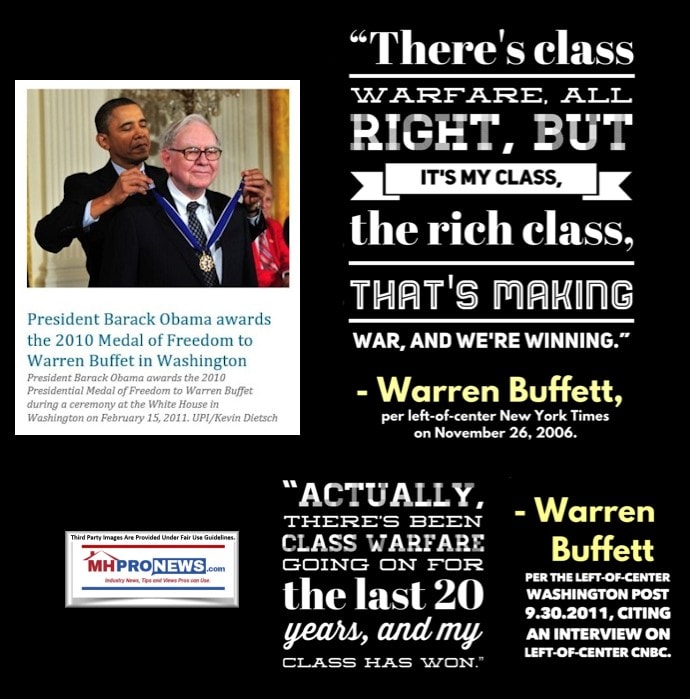

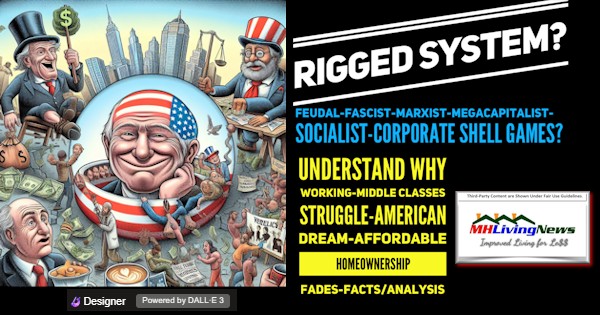
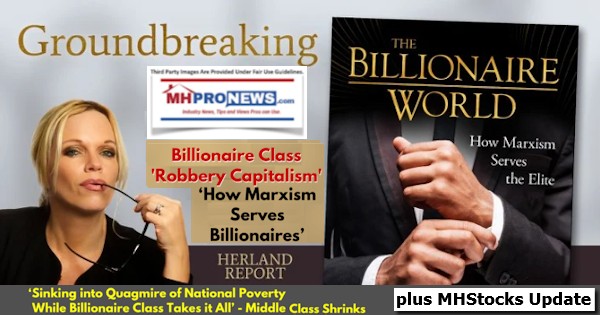
Longer term readers of MHProNews with a keen mind for details may recall this remark by Justin Haskins at the Heartland Institute prior reference during the post-Covid19 outbreak period.

Much of the leftist energy in the Democratic party and neo-Marxist, neo-Socialist groups have been co-opted by the big business elites in the U.S. That doesn’t mean that some on the right aren’t bought through campaign finance donations too, of course some are. But as MHProNews has painstakingly documented, even sources from the political left have directly or essentially made similar observations. Robert F. Kennedy Jr., a lifelong Democrat and a progressive/leftist to be sure, recently bolted from the Democratic Party. He was openly saying several of the same things that Chomsky, Herland, Haskins, and others have said. Namely, that the elites in the U.S. have hijacked the political and economic system. They have been working for years in the U.S. to create a new American form of facism or a neo-feudalist society.
Longtime readers here will recall what former Governor Jerry Brown (CA-D) said on the topic. Notice the similarlities between what Brown said and what Chomsky stated: “Concentration of wealth yields concentration of political power, particularly so as the cost of elections skyrockets, which forces the political parties into the pockets of major corporations“?!
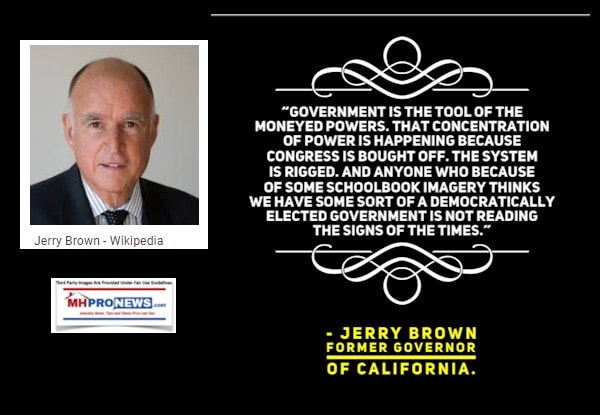
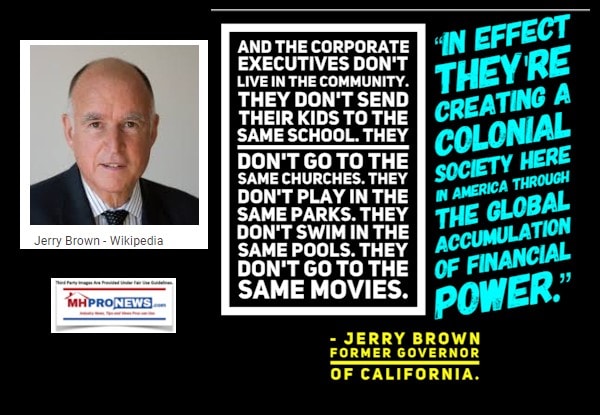
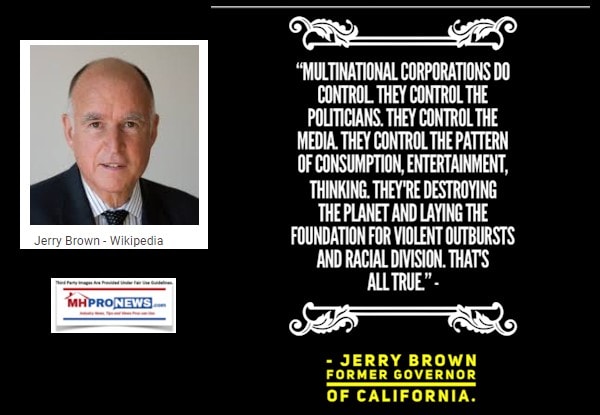
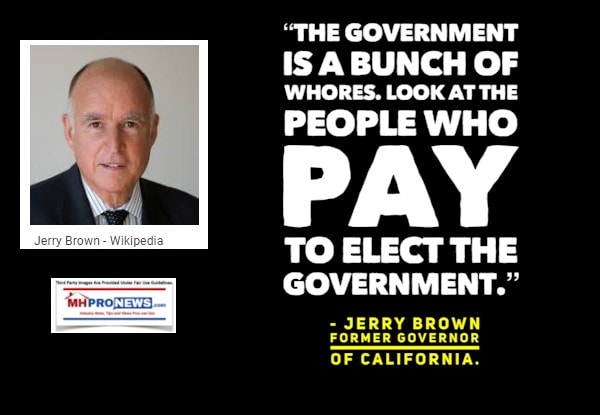
Brown and Chomsky are not the only ones on the left who have made this argument. Former President William “Bill” Clinton (D) administration official Robert Reich, also a longtime Democrat, said the following.
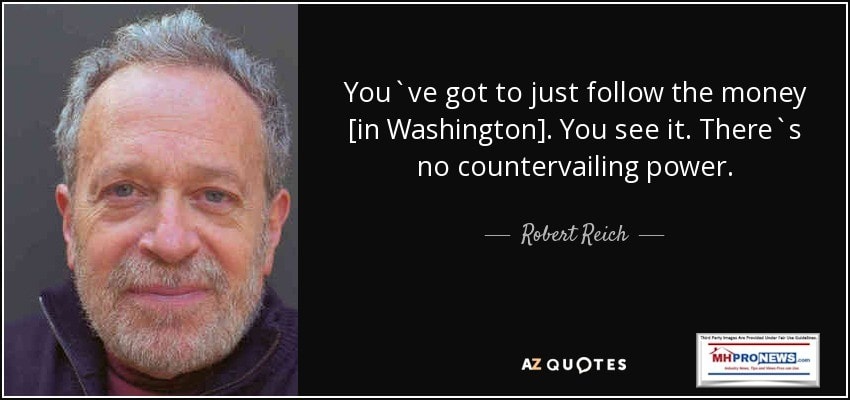
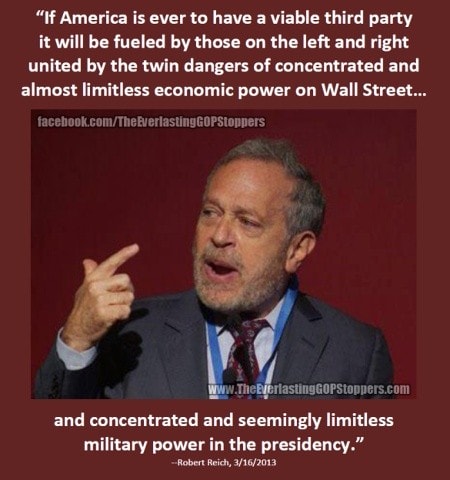
Chomsky raised the important topics of the financialization of the U.S. economy, the banking and money system.
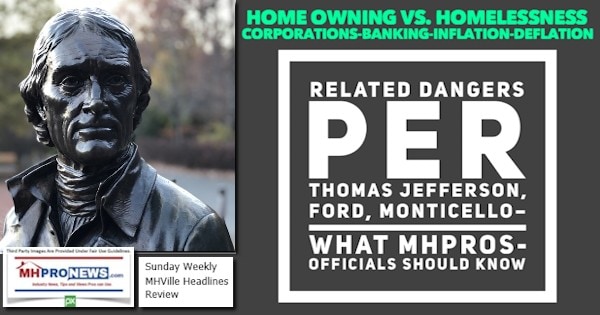
Chomsky also aptly raised the point of shipping U.S. manufacturing jobs off to communist China, and the impact that has had on middle class earning power. These are topics that MHProNews has repeatedly explored.
Then, consider what RFK Jr. has said this year. He claims he wants to ‘end the corrupt merger of state-corporate power threatening a new feudalism in the U.S.A.’ It is a fair question if Kennedy means what he says, given that he too is accused of taking Hollywood and big donor dollars. But what is certain is that Kennedy bolted from the Democrats, claiming – as did Bernie Sanders in 2016 – that the party’s nominating system was rigged. In 2016, former DNC Chair Donna Brazile claimed it was rigged for Hillary Clinton against Sanders. In 2024, says Kennedy, it is rigged for Joe Biden. So, in what sense is the Democratic Party democratic? As former longtime Democrat and award-winning CNN reporter, Chris Plante (who has become a Democratic critic and award-winning WMAL nationally syndicated pundit) has quipped. “The Democratic Party Isn’t [democratic].” It has instead become a party for insiders, that masquerades as a party for minorities and the disadvantaged. Kennedy, in bolting the Democratic party’s nominating process says that corporate and government powers are colluding to censor voices like his, as well as conservative voices too.
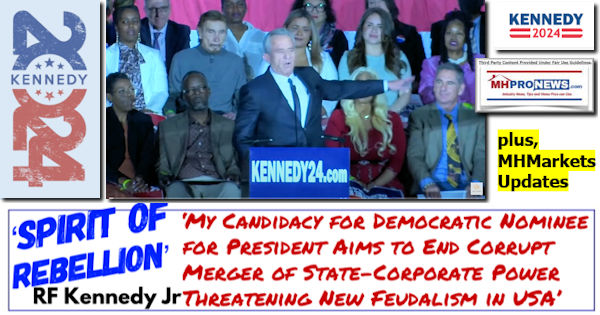
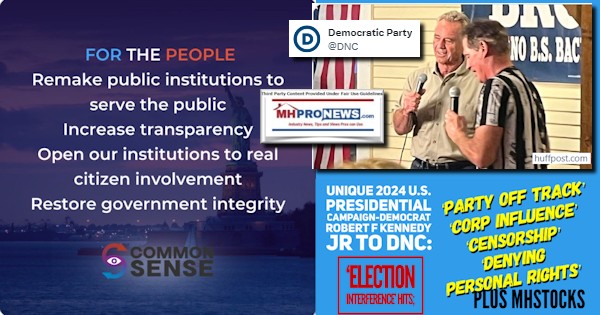
What may have sounded a few years ago – or once branded – as so-called ‘conspiracy theories’ are when carefully examined so laden with evidence now that it is difficult to deny. Millions on the political right already believe these things to be true. For those on the left and center, millions believe that the system is rigged. What many may not yet realize is that those who have rigged it are routinely in string-pullers in and over the Democratic Party apparatus. While big donors have given to ‘dark money’ supporting candidates on both sides of the two major party system, in recent years, the largest sums are going to Democrats. Who says? Often leftist sources like Open Secrets, which was funded by Democratic megadonor George Soros. “Blue” is usually donations to Democrats. Note that each of these next images can be opened to a larger size. Click the image, and follow the prompts. With manufactured housing industry (and a range of other professions too) linked BlackRock, note that the campaign donations moved from being more Republican in 2004, to more Democrat by 2006. The sums swelled in recent years (see second graphic below), but routinely favored Democrats since 2006.
Democrats Getting More Big Dollar Donations than Republicans for Years
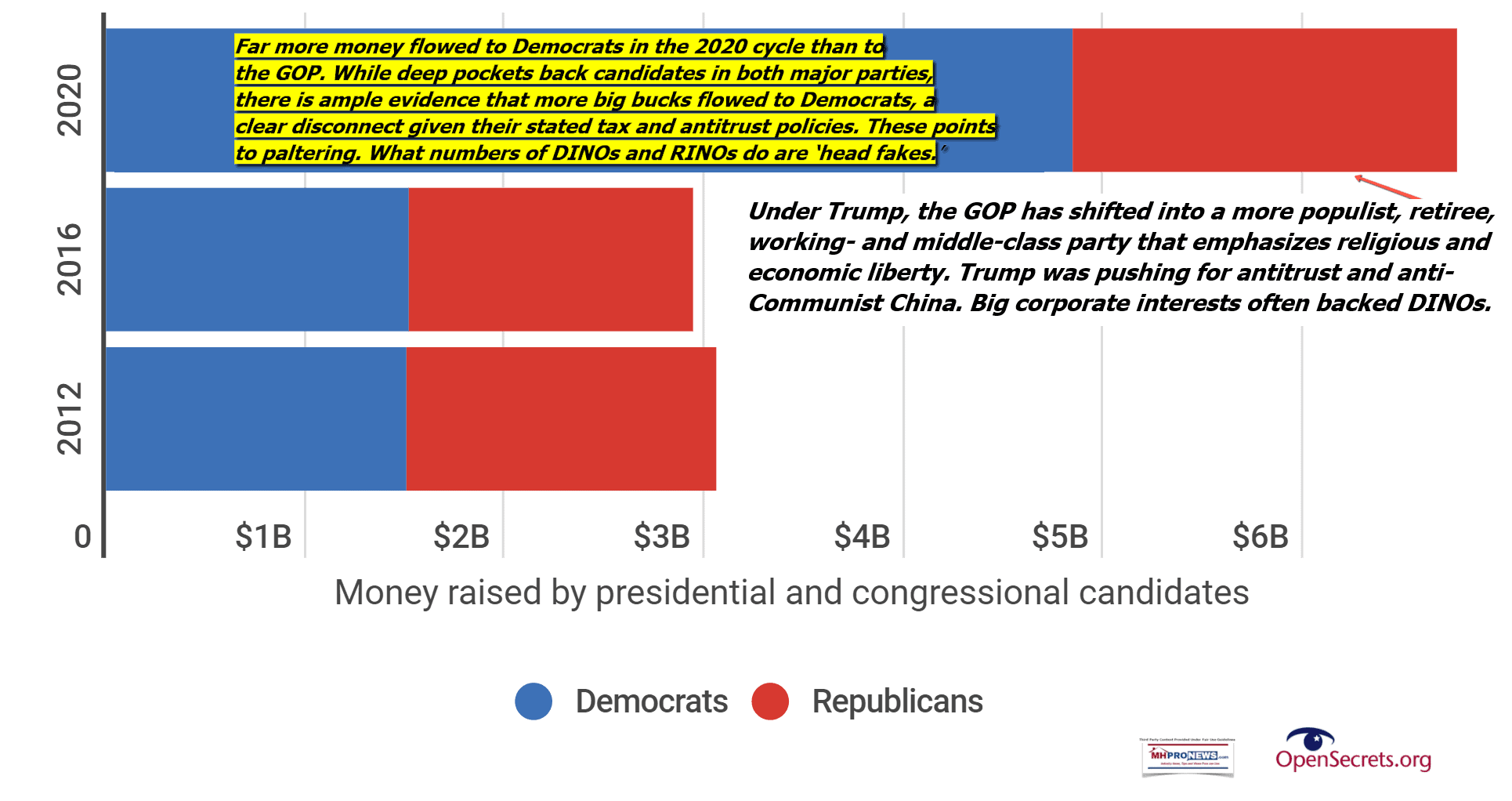
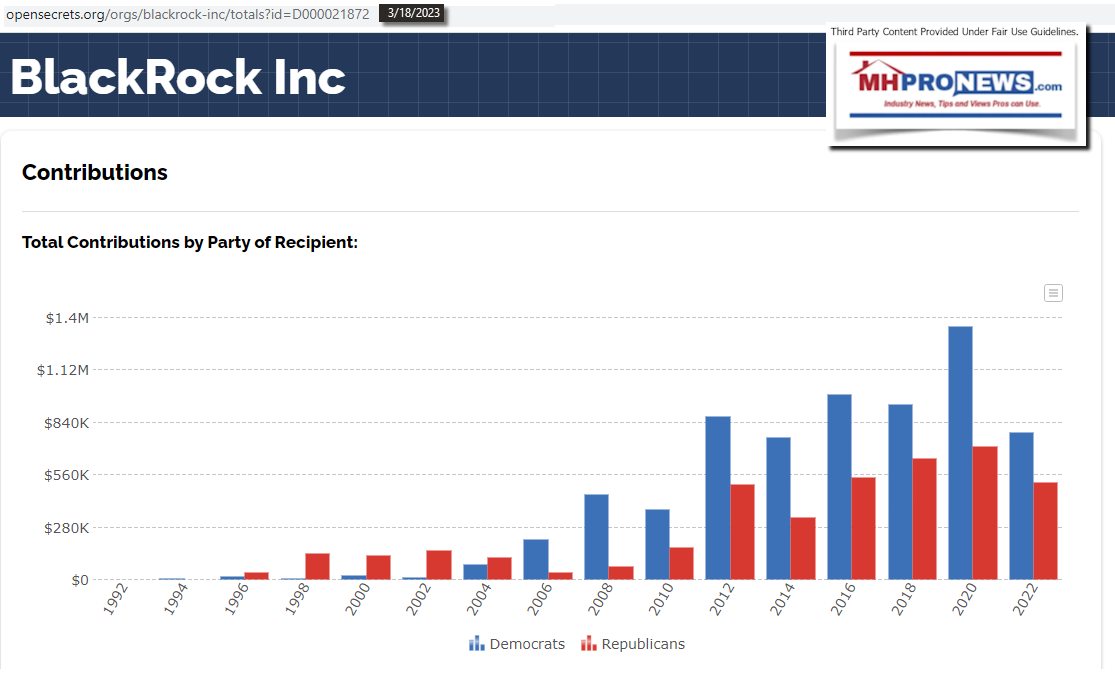

These are facts backed up with plenty of evidence. How does this pattern escape the attention of so many? Ironically, Chomsky said it: consent is being manufactured by PR machines. The wealth and corporate interests’ control much of the media.
> “It has been said that a relatively small number of corporations control something like 90 percent of U.S. media. Can you shed light and elaborate on that?”

Yes, it is true that a relatively small number of corporations control a large portion of the U.S. media. According to a 2012 report by the media reform group Free Press, just six companies — Comcast, News Corp, Disney, Viacom, Time Warner, and CBS — own or control about 90 percent of the media in the United States12. …”
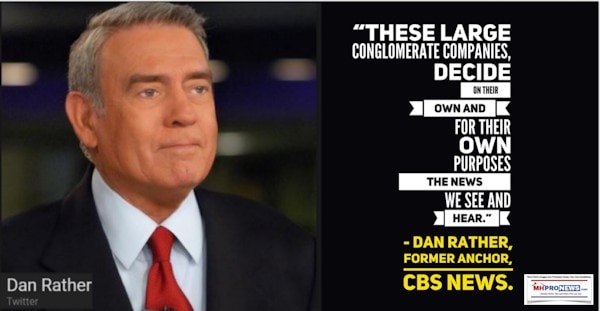
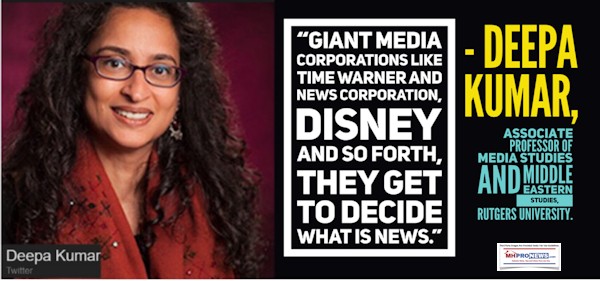
Bing AI provided these pull quotes about Donald J. Trump, before and after winning election in 2016, commenting on the rigged system.
Trump and the Rigged System
- “It’s not just the political system that’s rigged, it’s the whole economy,” Trump said in a speech in 2016. “The middle class can’t get ahead,’ Trump argued, ‘because the system is controlled by big donors, big businesses and big bureaucrats who all want to keep wages down while enriching themselves” 1.
- In a speech in December 2017, Trump said, “The system is rigged. Just remember that. And I’m afraid we’re going to have to build a much stronger movement because that’s what it’s going to take”
When Trump, who Democrat Joe Biden recently said is a key reason he is running for reelection, is being hit with dozens of indictments, often from Democratic-districts and public officials, it is an apparent example of the weaponization of government in a political way. Tucker Carlson has become one of the most popular commentators on politics in the U.S. Since leaving Fox News, his posts on X (formerly called Twitter) have routinely drawn more views that his top rated TV program used to generate. In response to an inquiry, Bing AI said in part the following.

In November 2023, Carlson revealed that he became an “active” supporter of Trump after the raid on Mar-a-Lago. During an interview with Roseanne Barr, Carlson shared that he was initially skeptical of Trump but became convinced that the former president was being unfairly targeted by the government 2.”
The U.S. is moving dangerously closer to fascist police state, say voices on the left and right. If a billionaire and former president, Donald Trump, can be targeted, then the rights of all ordinary citizens are threated. That was our evidence-based analysis well before Tucker Carlson made his public remarks, noted by Bing AI, above.

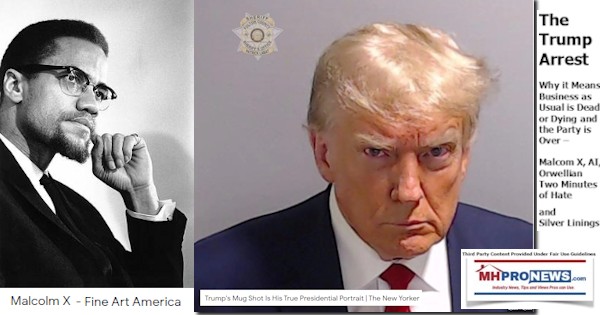
This analysis is not about a plug for Trump, although it is a relevant point.
Rather, it is to illustrate just how deviously rigged the system is.
The word games that the linguist Chomsky is so well known for is part of the weaponization used to ‘manufacture consent,’ in this case, against Trump. It stands to reason that Trump is being targeted by RINO (vs. MAGA) Republicans and Establishment Democrats precisely because Trump is NOT playing along with the other billionaires and big corporate interests who are largely favoring Democrats.
But Trump made the point in 2016 by winning. Even a ‘rigged’ system can be beaten. The jury’s guilty verdict a couple of months ago on Sam Bankman Fried (SBF), a big time Democratic donor, is evidence that the system CAN work. But as Trump noted, and Chomsky himself (who is not a Trump fan) indicated, it requires organization. Large numbers of every day Americans have to be coalesced into a movement that uproots a corrupted system.
Fortunately, before and since Trump, there has been numbers of organizations that have been formed and are growing which support similar principles. In manufactured housing, the nonpartisan Manufactured Housing Association for Regulatory Reform (MHARR) champions the cause of smaller, independent producers of affordable HUD Code manufactured homes. They implicitly are working against big corporate interests, represented by the Manufactured Housing Institute.
Beyond MHARR, and not limited to manufactured housing, are organizations such as the Job Creators Network (JCN) the National Federation of Independent Business (NFIB) or organizations for individuals, such as AMAC.us – the Association of Mature American Citizens (AMAC). Per former Congressman Allen West, author-pundit Mark Levin, Dana Loesch, and author-pundit and Blaze TV founder Glen Beck, AMAC is a conservative alternative to the left-leaning AARP. But per what AMAC has told MHProNews, they are NOT limited to those over 50. Any adult can be a member of AMAC. These are just facts, not paid plugs.




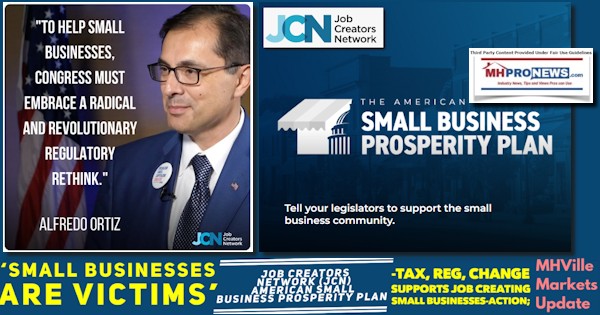
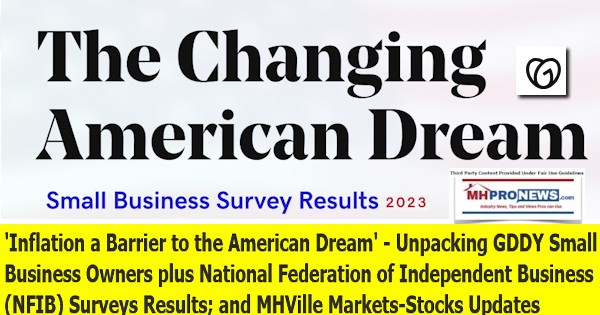
When it comes to politicians, it can be a good idea to ignore what they said, and look first at who financed their campaign.
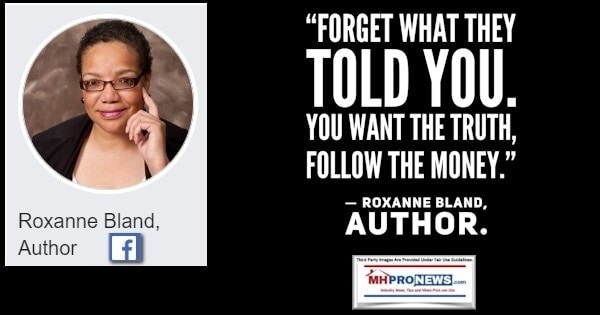
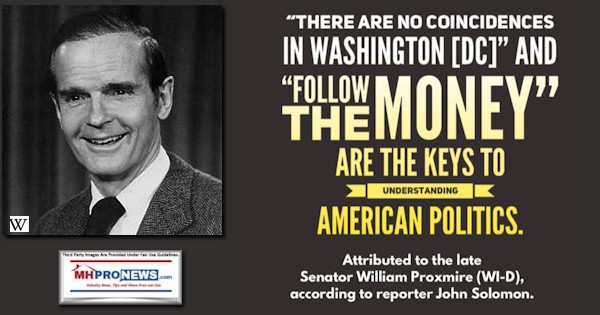
Doing nothing will only increase the odds of the status quo remaining the same.
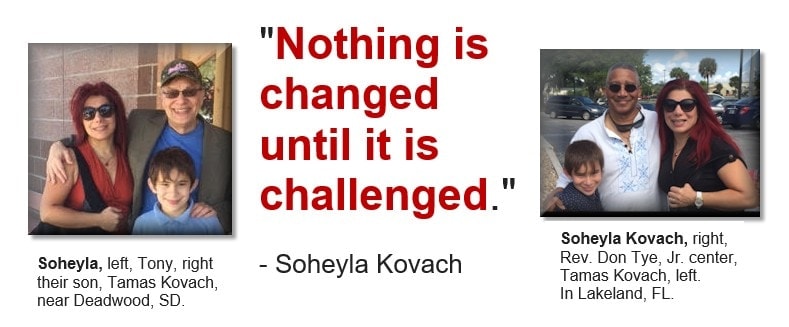
The primary process is very important to fixing what is wrong in the U.S.
But so is understanding jury rights and jury powers. There is a case to be made that the strongest vote that a person has is a vote in a jury panel. While most of us will not likely serve on such a high-profile jury as the SBF case, for those who do, it is not only a chance to make history. It can be a ticket to future fame if some juror decides to write a book about the experience.
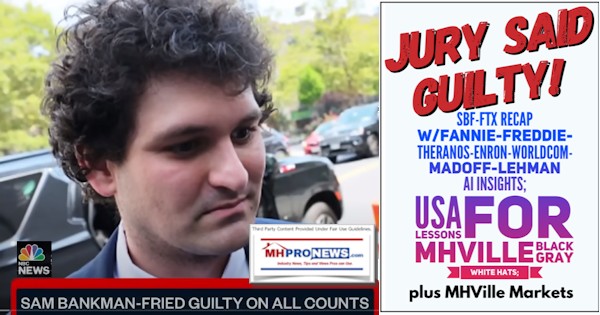
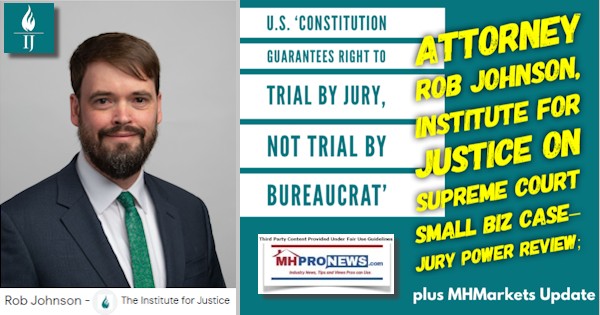
The late Martin Luther King Jr. aptly said that it is always the right time to do the right thing.
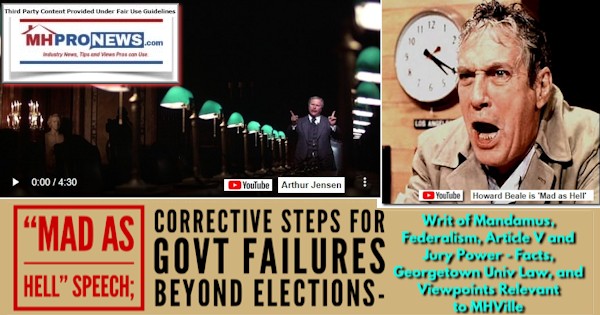
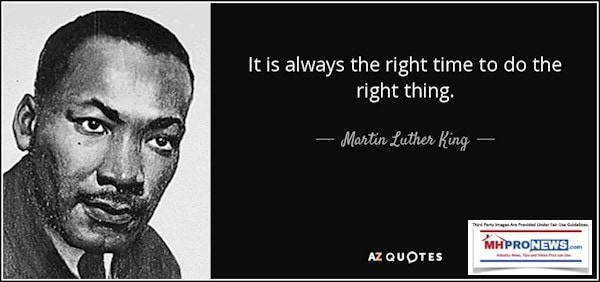
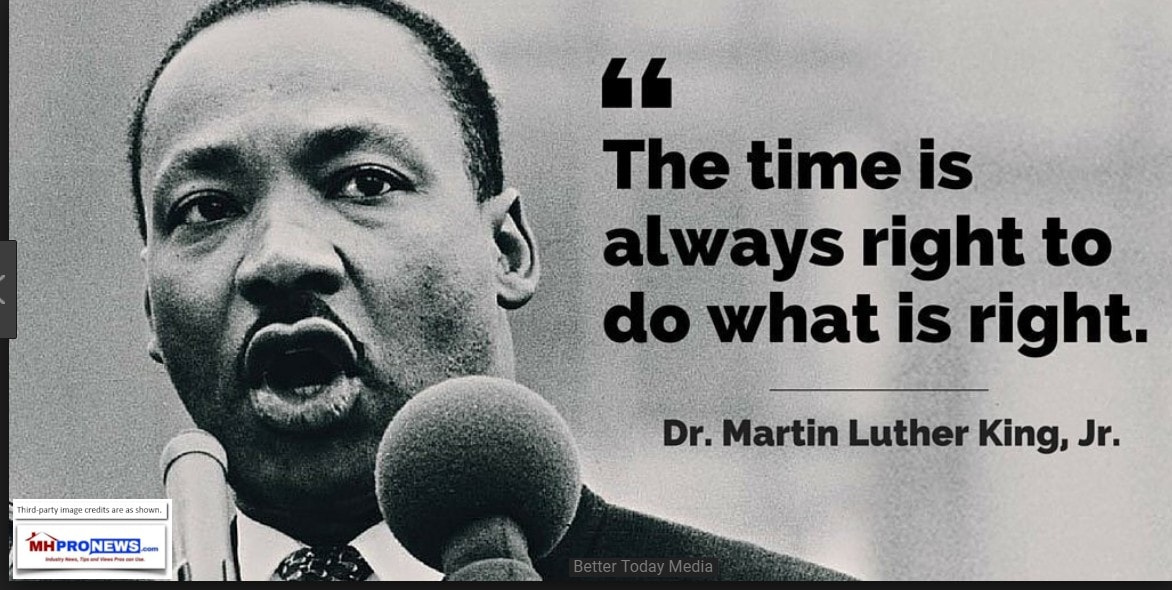
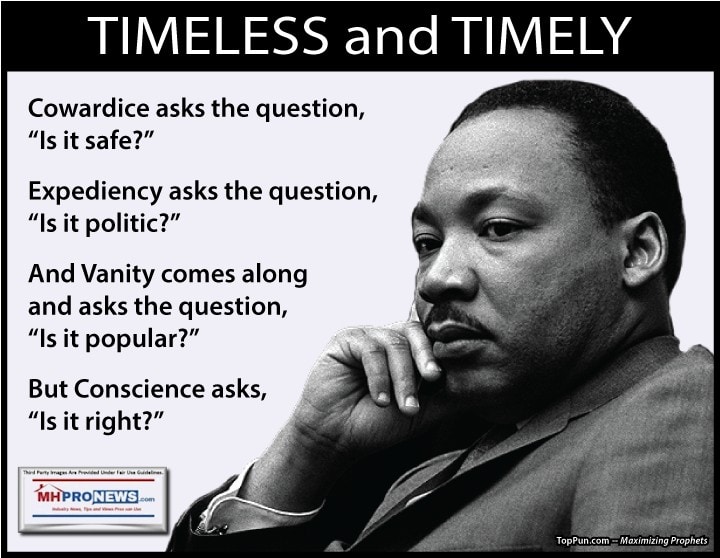
The laws necessary to punish those who have rigged the system already exist. Antitrust – anti-monopoly – law enforcement is arguably part of that mix. According to recent YouGov surveys, most Americans believe in antitrust laws.
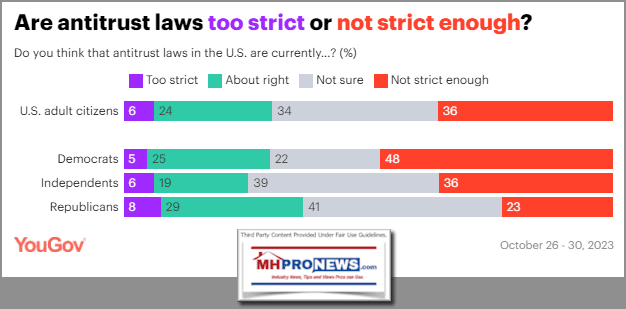
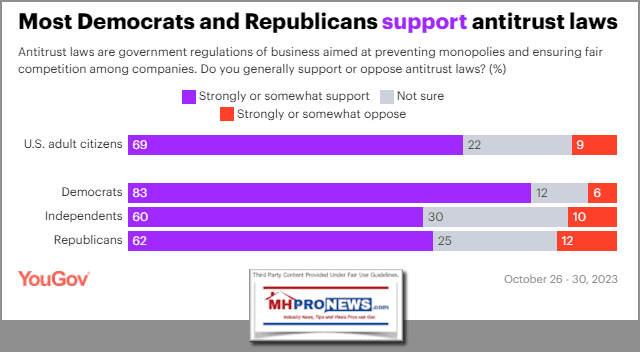
Unrigging the system has been an ongoing battle. The fight against monopoly power dates back to the time of the revolutionary war period.
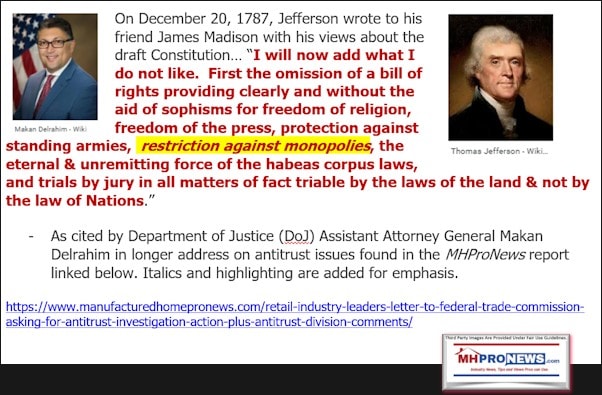
It is worth noting that some of the major antitrust cases now being handled against the tech giants were launched during the Trump years.
This is the battle for the American Dream. It has to be waged before, during, and after elections. It has to be organized and continuously fought. Freedom has never been free. Indeed, slavery and servitude have been the historic norms. The wealthy want to return to those eras when money and power more routinely meant that they ruled outright. It is up to people of good will to get informed, adapt their thinking as needed, and then act to root out the problems that have subverted the American Dream. It can be done peacefully. We favor peaceful change by informing our fellow citizens of the truth, their rights, and the road to recovery. But the founders knew that there were times when armed rebellion was needed too, which is why the 2nd Amendment backs up all of the other constitutionally protected rights. If the future of America isn’t won peacefully, some will likely turn to other perceived solutions.



Let’s do it the peaceful way, shall we? ###

Part III – is our Daily Business News on MHProNews stock market recap which features our business-daily at-a-glance update of over 2 dozen manufactured housing industry stocks.
This segment of the Daily Business News on MHProNews is the recap of yesterday evening’s market report, so that investors can see at glance the type of topics may have influenced other investors. Thus, our format includes our signature left (CNN Business) and right (Newsmax) ‘market moving’ headlines.
The macro market move graphics below provide context and comparisons for those invested in or tracking manufactured housing connected equities. Meaning, you can see ‘at a glance’ how manufactured housing connected firms do compared to other segments of the broader equities market.
In minutes a day readers can get a good sense of significant or major events while keeping up with the trends that are impacting manufactured housing connected investing.
Reminder: several of the graphics on MHProNews can be opened into a larger size. For instance: click the image and follow the prompts in your browser or device to OPEN In a New Window. Then, in several browsers/devices you can click the image and increase the size. Use the ‘x out’ (close window) escape or back key to return.
Headlines from left-of-center CNN Business – from the morning of 12.8.2023
- These ‘dome homes’ made from soil mix tradition and innovation
- David Rubenstein is in talks to buy MLB’s Baltimore Orioles
- Markets digest stronger-than-expected November jobs data
- Rabbi David Wolpe resigns from Harvard’s antisemitism advisory group
- Krispy Kreme arrives in France. Parisians can’t get enough
- OpenAI saga continues as UK considers antitrust probe into its Microsoft partnership
- The US economy added 199,000 jobs in November
- UPenn President Liz Magill under fire over her testimony on antisemitism: ‘An utter disgrace’
- Wayne Murray of Brooklyn has claimed a $10,000,000 top prize on the New York Lottery’s 200X scratch-off game. Murray claimed his first $10,000,000 top prize on the Lottery’s Black Titanium ticket in 2022.
- Man wins $10 million lottery jackpot – for the second time
- The self-checkout reversal is growing
- Why UPenn President Liz Magill is facing more pressure than other university presidents over antisemitism
- Major donor calls on UPenn president to resign for disastrous testimony on antisemitism, threatening $100 million gift
- Americans are no longer ready to shop till they drop
- Hundreds of Washington Post staffers staged a historic one-day workout, leaving the paper scrambling to cover the news
- China vows ‘proactive’ fiscal policy to boost economy in 2024
- Hong Kong and Saudi Arabia want to do more business together. Here’s why
- MacKenzie Scott donated $2.15 billion to hundreds of charities this past year
- 2023 was an ‘extinction’ level year for tech startups. Where did all the money go?
- Meta’s Oversight Board to weigh in on company’s handling of Israel-Hamas war content
- CPSC issues several warnings for tiny magnetic balls after seven deaths
- Russian propagandists exploited celebrity Cameo videos to spread disinformation, Microsoft says
- Meta rolls out encrypted messaging by default for Facebook and Messenger
- A new bedtime story voiced by Jimmy Stewart just in time for Christmas, 26 years after his death







